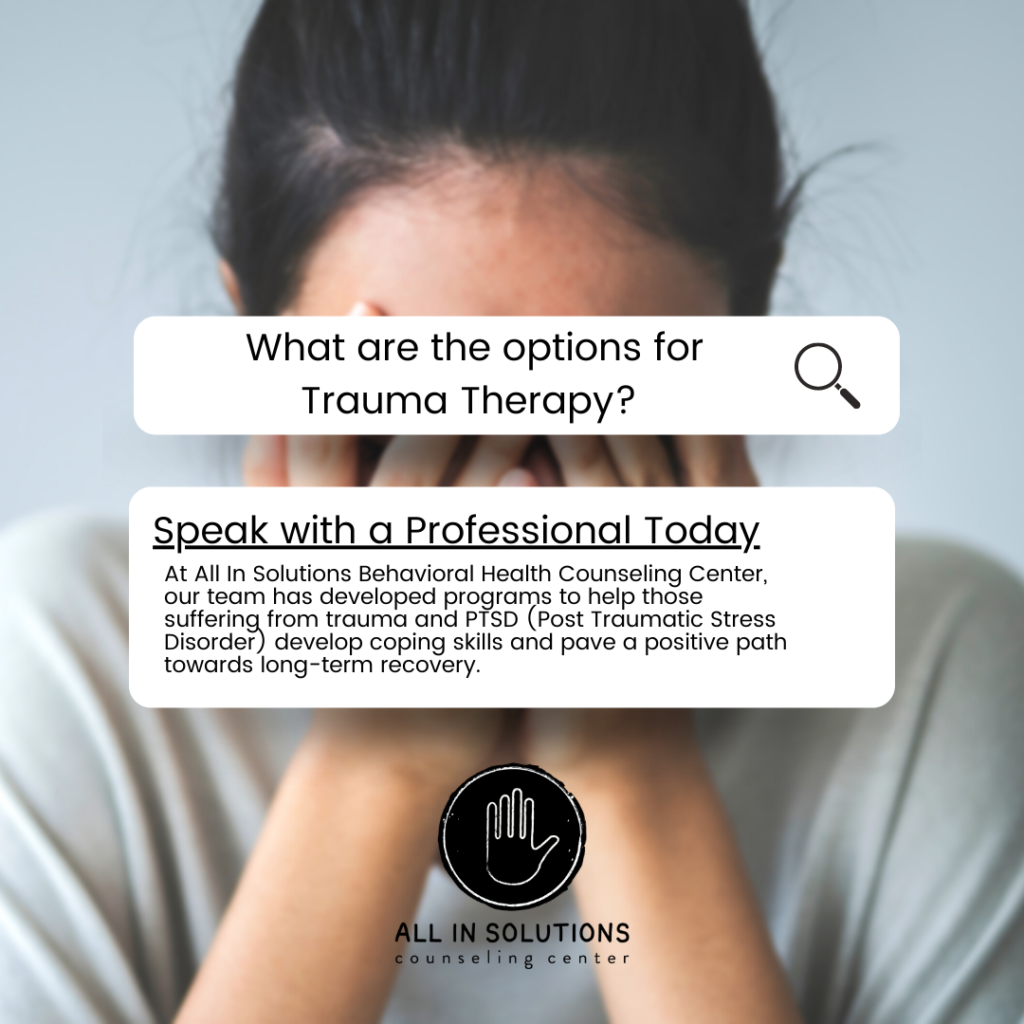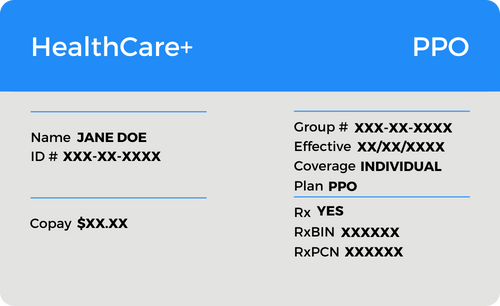Trauma Therapy
Mental Health and Substance Abuse
When considering the importance of trauma therapy during treatment of an addiction, it is first important to understand the relationship betwee substance abuse and mental health. Often mental health conditions and addiction have a positive feedback relationship with one another – meaning that the product of a reaction leads to an increase in that reaction. In other words, an early traumatic experience may cause an indivitual to self-medicate their psychological/emotional symptoms, which leads to a substance use disorder (SUD) which actually exacerbates the symptoms of the trauma disorder.
Individuals with PTSD may believe that by using drugs and alcohol, they will numb the symptoms of the sympathetic nervous system dysregulation that occurs in response to trauma. When we experience trauma, the brain shuts down all nonessential systems and activates the sympathetic nervous system in the mammalian brain. The brain releases stress hormones and triggers the flight or fight response (or in some the freeze and fawn response) intended to keep us safe. In the case of PTSD and trauma-related disorders, this response lasts longer than it should and leads to a host of mental health symptoms.
What is Trauma Therapy?
Trauma therapy is a type of therapy that can help you deal with trauma’s physical, emotional, and psychological effects. Trauma-focused therapy is a specific approach that recognizes and emphasizes understanding how the traumatic experience impacts an individual’s mental, behavioral, emotional, physical, and spiritual well-being.
Trauma Therapy Techniques and Trauma Based Therapy
Patients who experience mental health problems have often experienced trauma or a traumatic event in their past, further influencing substance abuse. For example, domestic violence, sexual assualt, child abuse, military combat, car accidents, natural disasters, life-threatening illnesses, fetal trauma, industrial accidents, prolonged neglect, and even verbal abuse can lead to negative thoughts, feelings, and conditions which are long term symptoms of mental health illnesses associated with trauma.
At All In Solutions Counseling Center, our team has developed programs to help those suffering from trauma and PTSD (post traumatic stress disorder) develop coping skills and pave a positive path towards long-term recovery. Frequently, mental health, substance abuse, and trauma have to be treated simultaneously to achieve tremendous success at long-term sobriety and mental stability. Emotional health is one of the most important factors of influence towards success in recovery. Therefore, considering emotional health, addressing underlying issues derived from post-traumatic events and single case instances can lead to more positive success rates.
Patients can benefit from trauma-focused therapy as research suggests that this therapeutic style can restructure communication pathways within the brain to reverse the effects of trauma. This can significantly resolve many emotional, behavioral, and physical difficulties associated with a single, multiple, and complex trauma experiences by reconnecting memories to subdue a fear based response to a regulated, relaxed, and controlled way of living.
Our trauma therapy program is designed from a mind, body, and spirit approach to integrating healing tools for an individual to reach their fullest potential. All In Solutions Trauma Therapist Dana Barnes, LAC, NCC, CCTP understands the sensitivity to tend to each individual’s specific needs within this process. Our treatment program allows individuals to acquire skills to face their darkness with unconditional compassion and a solid therapeutic alliance to reach a life of inner freedoms and peace. The approach is taken from a mindfulness-based view to getting symptom alleviation moves towards utilizing Cognitive Processing Therapy and Narrative Therapy perspectives to provide skills to reach empowerment. By expressing the narrative, the individual understands their emotions, thoughts, sensory information, and physiological responses to transform their lives.

Table of Contents:
- Trauma Therapy – Mental Health and Substance Abuse
- What is Trauma Therapy?
- Trauma Therapy Techniques and Trauma Based Therapy
- What are the options for Trauma Therapy?
- What are the Types of Trauma Therapy? Remedies, Approaches, and Continuing Care
- Commonly Prescribed Medications for PTSD, Co-Occurring Disorders, Etc. (Non-Narcotic Medication Solutions)
- What are the most common symptoms of PTSD?
Leave Trauma Behind
Overcome the darkness of your past with the help of experienced substance abuse and trauma therapists
Call NowYou're Not Alone - Let Us Help
Compassionate treatment facilities composed of medical and clinical professionals in addiction treatment with integrated, holistic therapies can help you overcome substance use disorders improve physical health, mental health, and quality of life
Contact UsWhat are the options for Trauma Therapy?
Since people experience and process traumatic events differently, it can be challenging to identify the most effective therapy method. Therefore, counseling centers and therapists use various forms of trauma therapy to help people in their most vulnerable moments. Doctors and clinicians use a variety of trauma therapy treatment options to help people cope with trauma and PTSD. Some methods have been used for decades, while new remedies, therapies, and treatments are being discovered to date. Every individual has specific symptoms, and therefore selecting the suitable therapy options and best fit counseling or treatment center is imperative. All In Solutions uses unique treatment plans to help identify and narrow a patient’s symptoms with the best possible medical and clinical action method. These therapies may not be suitable for everyone. However, they have proven effective in most patients when confronted with traumatic events.
Your Insurance May Cover Addiction Treatment
Did you know that most health insurance plans provide coverage for substance use disorder treatment? Submit your policy information below for a free, confidential review of your benefits. All In Solutions accepts most health insurance plans.

What are the types of Trauma Therapy? Standard Terms, Remedies, Approaches, and Continuing Care
- Psychotherapy
* Psychotherapy is generally used to treat mental health problems through discussions with psychiatrists, psychologists, or other mental health providers. In psychotherapy, patients will learn about their condition as well as their moods, feelings, thoughts, and behaviors.
- Individual Trauma Therapy
* Individual-specific trauma therapy recognizes and identifies the understanding of the root cause of any traumatic experience and how it affects that specific individual’s physical, emotional, and psychological effects of trauma.
- Exposure Therapy
* Exposure therapy is a clinical treatment that focuses on patients confronting their fears which can be directly associated with past trauma, negative experiences, and underlying issues. When a patient is fearful, they tend to avoid the related people, places, and things.
- Anxiety Therapy
* Anxiety therapy focuses on teaching you specific skills to improve your symptoms and gradually return to the activities you’ve avoided because of anxiety
- Somatic Trauma Therapy
* Somatic Experiencing is a physically centered approach that focuses on the physical sides rather than only relying on the thoughts and emotions associated with trauma. Using this approach includes the natural somatic or bodily responses.
- EMDR Trauma Therapy (Eye Movement Desensitization and Reprocessing)
* Eye movement desensitization and reprocessing (EMDR) refers to an interactive psychotherapy technique to relieve psychological stress. Eye Movement Desensitization and Reprocessing Therapy involve attention to three time periods: the past, present, and future. In addition, the focus is given to past disturbing memories and related events.
- Brainspotting
* Brainspotting therapy is an alternative therapy that uses spots in a person’s visual field to help them process trauma. Brainspotting is intended to help patients access, process, and overcome trauma, as well as negative emotions.
- Cognitive Behavioral Therapy For Trauma
* TF-CBT is an evidence-based treatment that helps patients and individuals address the adverse effects of trauma, including processing their traumatic memories overcoming their related difficulties.
- Trauma-Informed Therapy
* Trauma-informed therapy is not a specific procedure but about adaptation interventions in the history of the individual’s trauma and the associated triggers and individual needs. The therapist can then view the client’s considerations explicitly about the impact of the trauma and its effects on the individual’s emotions and behaviors.
- Art Therapy For Trauma
* Art Therapy can help trauma patients examine feelings and thoughts about trauma by making a mask or drawing a sense and discussing it. Art builds grounding and coping skills by photographing pleasant objects. In addition, it can help tell the story of trauma by creating a graphic timeline.
- Yoga Trauma Therapy
* Yoga is a natural therapy that helps individuals feel things physically, incentivizing them to notice how their bodies react and sustain. Regulated breathing, for example, calms the parasympathetic nervous system.
- Trauma Group Therapy
* Group therapy, a widely accepted treatment option for many years, is highly beneficial in treating trauma. Groups provide a safe, nurturing, welcoming environment in which painful feelings and experiences can be shared. In addition, groups allow people to speak the unspeakable.
- Trauma Systems Therapy
* Trauma Systems Therapy (TST) is a comprehensive, phase-based treatment program for patients who have experienced traumatic events and live in environments with ongoing stress and traumatic reminders.
- Neuromuscular Trauma Therapy
* Neuromuscular Therapy is a highly-specialized form of manual therapy that corrects pain and dysfunction by treating trigger points, muscle adhesions, and fascial (connective tissue) patterns. Neuromuscular massage therapy is a form of physical massage in which pressure and friction are used to release areas of strain.
- Acceptance and Commitment Therapy
* ACT (Acceptance and Commitment Therapy) is an action-oriented approach to psychotherapy that derives from traditional behavioral therapy and cognitive-behavioral therapy. Patients are taught to stop avoiding, denying, and struggling with their inner emotions and instructed to move towards accepting their deeper feelings and the appropriate responses to specific situations that have previously prevented them from moving forward in their lives. Patients then begin to accept their problems and difficulties and commit to making the necessary changes in their behavior regardless of their current state.
- Psychodynamic Psychotherapy
* Psychodynamic psychotherapy or psychoanalytic psychotherapy is a form of psychoanalysis and in-depth psychology, which primarily focuses on revealing the unconscious content of a client’s psyche to alleviate psychic tension. That psychic tension is inner conflict within the mind created in a situation of extreme stress or emotional hardship, often in the state of distress.
- Family Trauma Therapy
* TF-CBT is a kind of treatment that can help patients and their families to treat the negative impact of traumatic events as witnesses of violence, to experience sexual or physical abuse, unexpected death, or a natural disaster. Family Trauma Therapy focuses on providing a safe space for those suffering and their families to learn how a traumatic event has impacted their lives.
- Religious Trauma Therapy
* Religious Trauma Syndrome (RTS) is recognized in psychology and psychotherapy as a set of symptoms of varying severity experienced by individuals who have participated in or left religious groups and authoritarian, dogmatic, and controlling belief systems.
Commonly Prescribed Medications for PTSD, Co-Occurring Disorders, Etc. of Trauma Therapy?
Non Narcotic Medications associated with Substance Abuse and PTSD
- Antidepressants
*Prozac or Sarafem (fluoxetine), Celexa (citalopram), Zoloft (sertraline), Paxil, Paxeva, or Brisdelle (paroxetine), Lexapro (escitalopram), and Welbutrin are all options for antidepressants that are alternatives medications with addictive properties.
- Antianxiety Medications
*SSRIs, SNRIs, Buspirone, beta-blockers, Pregabalin, Gabapentin, Hydroxyzine, Panax, and Diphenhydramine are options for anxiety alternatives addictive benzodiazepines.
What are the Most Common Symptoms of PTSD
Post-traumatic stress disorder (PTSD) is a mental health illness brought on by watching or experiencing a horrific incident. Flashbacks, nightmares, and acute anxiety, as well as uncontrolled thoughts about the incident, are all possible symptoms.
Most people who experience traumatic situations have temporary difficulties adjusting and coping, but they normally get better with time and adequate self-care. You may have PTSD if your symptoms worsen, linger for months or even years, and interfere with your day-to-day functioning. Symptoms include:
- Re-experiencing the Trauma
- Avoidance and Emotional Numbing
- Hyperarousal
- Negative Thoughts and Beliefs
- Mental Health Illnesses
- Self Harm
All In Solutions Locations Offering Trauma Informed Addiction Treatment
At All In Solutions Counseling Center, our trauma therapy program allows clients to reach their full potential by addressing issues on the physical, emotional, and spiritual level. Trauma therapist, Dana Barnes, LAC, NCC, CCTP understands the sensitivity required when dealing with painful past experiences. Clients are empowered to face the darkness that has shaped their lives, in an unconditionally supportive and compassionate environment. A true freedom and inner peace is only attainable by overcoming these obstacles.
Cognitive processing therapy and narrative therapy are combined to bring about mindfulness and to alleviate PTSD symptoms. By developing an awareness of one’s emotions, thoughts, sensory information, and physiological responses, clients awaken to their power over the events that have impacted the. To learn more about our programs, call us today or check out our locations below.

All In Solutions Counseling Center
PHP & IOP in Boynton Beach, Florida
All In Solutions Counseling Center Cherry Hill
PHP & IOP in Boynton Beach, Florida
All In Solutions Wellness Center
Detox & Residential in West Palm Beach, Florida
All In Solutions California
PHP & IOP in Simi Valley, California
All In Solutions Detox
Detox & Residential in Simi Valley, California




